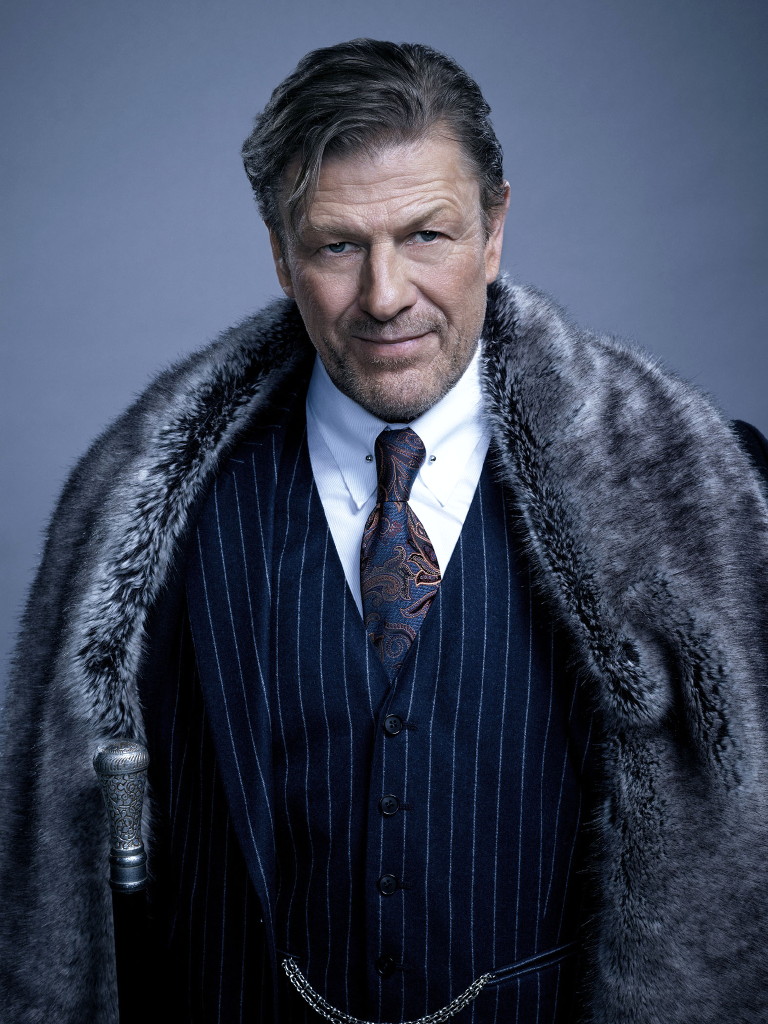By Barb Oates
The first 10-episode season of this thrilling remake of the post-apocalyptic dystopian 2013 film was a riveting ride. The series centered around all that was left in a frozen world — an amazing 1,001-car train called Snowpiercer that was filled with 3,000 passengers, divided by social classes, who were left to follow the principles of the train’s builder Mr. Wilford: respecting work, honor and order. But social injustices led to a rebellion. So where did we leave off?
Let’s start with Layton, Hamilton‘s Daveed Diggs, who led the Tailies’ rebellion over social injustices, facing off against the upper class and the train’s leader Melanie (Jennifer Connelly). While the Tailies advanced uptrain, it came with great sacrifice as Layton had to cut off the prison carriage, sending his friends to their deaths. As for Melanie, the true brain behind Snowpiercer, we learned that she chose her beloved train and saving a piece of humanity, and she thought that came at the cost of her own daughter, Alexandra (Rowan Blanchard, Girl Meets World), and her former ally Mr. Wilford, as both were left behind. But the season-ending collision exposed that there was a second perpetually moving train, and Mr. Wilford and Alexandra are on it, and they aren’t happy as they look to board Snowpiercer.
Here, Mr. Wilford himself (the amazing Sean Bean, Game of Thrones), gives us some insights as a new power struggle emerges in Season 2.
Looks like you just can’t escape the cold and barbaric surroundings when it comes to TV series. What excited you about coming aboard and taking on the role of Mr. Wilford?
Sean Bean: I think it was the fact that I’ve seen the original film and was very impressed by that and when I was offered the chance to play Wilford, of all people, who didn’t star in the film, too much, it was a chance to elaborate on that character and I had no hesitation on getting involved.
When we last left the series, your train had attached to Snowpiercer. What can you tease about your train’s history/size and Wilford’s intentions? And then, what episode (and/or scene) are you particularly excited for fans to see?
Wilford’s train is really high-tech. He’s had quite some time to be able to refine the engine and the technical side of everything. It’s very lavish, as well. He’s built himself luxurious quarters so that’s kind of a contrast to the rest of the train, which gets worse as you get towards the back. There’s a scene where I’m introduced to the train again as a kind of returning hero and it’s very flamboyant and I’m in really good form, a bit like Oscar Wilde entering the London kind of co-op in the 1890s. And I tried to instill some of that into these particular scenes. He’s such a showman and he’s very flamboyant, which I enjoyed playing.
Lots of buzz surrounds whether Alexandra is your daughter. Clearly we know you can’t divulge, but share with us where the second season picks up and what type of relationship/loyalty Wilford has with Alexandra.
What I’ll say is Alexandra is very loyal to me and is behaving as though she is my daughter. The season picks up when there’s just been a war on the train and it’s in shambles. It’s wrecked and people are still weary of each other, and I come in just at the right moment with this new train. There’s a lot of people who support me still. It’s very false because I’m not going to do them any good whatsoever, but they’re the ones who are behind me so I capitalize on that and sweep them all up in this pomp and showmanship and promise them the world. So I’m returning on a good foot.
Tell us about Wilford’s amazing wardrobe and a few of your personal favorites.
They were all handmade for me by a wonderful tailor in Vancouver. There were about 10 made — all the finest fabric. All sorts — silk dressing gowns, pajama bottoms, Tom Ford underwear, fur capes, everything. Beautiful shirts, ties, waistcoats, Gucci slippers. The wardrobe is fantastic — so much so, I’ve asked whether I can keep it when we finish filming.
You were well into production on Season 2 before things got suspended due to the pandemic. What (if any) was the upside to having to shut down briefly? When you first got on set, what really wowed you about it?
It’s immensely challenging for production teams working in these conditions to keep everyone safe, and I have huge respect for them and, of course, all the frontline workers. There isn’t really much of an upside other than it gave me quite a lot of free time to catch up on everything and read a lot. When I arrived on set it was much quieter and focused; it was a smallish crew and it was interesting. It’s hard for everyone working under those conditions, but I thought they did an amazing job.

